
We recently visited the Design Simulation Research Centre in DEC and were really impressed with the passion and enthusiasm that the staff and students demonstrated for research. The Centre has recently won the Vice-Chancellor’s award for the best Research/Enterprise Project. We asked Research Centre Director Prof Siamak Noroozi to write a blog post about how this magic happens and a successful Research Centre grows and develops…
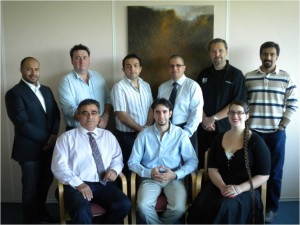 Starting from zero.
Starting from zero.
I did not come to BU to continue with my old research. I came here to develop research that underpins what DEC School is about and to create something that is both interesting and challenging both to me as well as everyone else in my centre.
How did I do it? And was I successful?
I have come to the conclusion that everyone has a certain natural ability in something. For example, one can be natural at sport or art or music, maths, engineering, DIY, medicine, science, management, leadership, etc. Whatever that natural ability is, if identified and nurtured properly it can change the person’s quality of life. Not everyone is a natural research scientist, even if that person is working in an academic institution or has a PhD. In the past 30 years I have seen many reasons why people engage with research. Sometimes it is because they are creative, driven and passionate about it. And, sometimes the pressure of competitive academic life and challenges that come with that!
I found it hard to engage people with a PhD in research that is outside their comfort zone or their PhD topic, but I quickly noticed that within my team there are people with a variety of skills or natural abilities. These abilities were ranging from Implementers, Co-ordinators, Shaper, Resource investigators, Evaluators, Team-workers or Completers/Finishers, etc. However there were not many Planters. By Planters I mean those who could see beyond their PhD who could create projects that are outside their comfort zone. Those who could create new research aligned with experiences, skills or background of other rather than their own. In other words develop different applications of the original research. This is particularly needed to ensure staff without PhD can engage and register for a PhD. Also to make sure projects do not to re-invent the wheel or, as one may put it, search about nothing.
I realised that research does not take place without PhD students (or legs on the ground) so I had to quickly expand our pool of research students and to team them up with different members/group of staff in my team. I had to engage staff in live PhD projects. This was important as their transferable skills was needed to help students to identify and develop their new and novel PhD project proposals, so that everyone in the team could identify with and was aligned or linked to the individual’s background. That resulted in Projects that everyone could get their teeth into and develop a sense of ownership of the original idea. Also to make sure projects have functional outcomes that inform and under-pin what we teach or that we wish to develop in terms of skill-sets or natural abilities.
Who are the people?
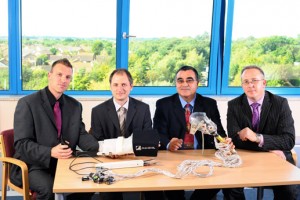 Of those involved in research, some are resourceful, creative and can develop new research ideas. Some do it by joining others or managing other people’s research ideas. But some just can’t engage with research full stop. Why? I do not know. Maybe because they need to be told how, and in research no one can. Also personality may have a lot to do with it. So you come to realise that everyone has a different view or definition of what research or research activities is all about.
Of those involved in research, some are resourceful, creative and can develop new research ideas. Some do it by joining others or managing other people’s research ideas. But some just can’t engage with research full stop. Why? I do not know. Maybe because they need to be told how, and in research no one can. Also personality may have a lot to do with it. So you come to realise that everyone has a different view or definition of what research or research activities is all about.
So what is all this?
So this blog post is not about who is right or wrong. It is about me having a vision of starting a research centre from scratch, and with limited or no financial resources. Having to find funds or sponsors to get the badly needed PhD students, who are essential to get the job done. To enable a diverse group of people all with different ambitions, agendas, interests, natural abilities and passion to form small research teams and collectively engage with research management, supervision and meetings. To bring about an atmosphere where everyone willingly participate in challenging research that is sometimes, or in most cases, outside their comfort zone. To help them develop their confidence in their ability to lead, manage and deliver on the research objectives and also contribute as a team member.
This is about delivering on my vision which was to ensure:
- All academics in my centre are research active (if they are willing),
- That we had the research students to satisfy the needs of all the members of the team I inherited,
- Support exists for a diverse range of funded/sponsored research projects.
This was also about:
- Identifying the needs, abilities and strength of the members of my team and exploit them in a positive way to bring about the necessary changes.
- Showing how one’s passion and natural ability in research generation & research informed teaching can quickly result in the creation of a range of diverse and sustainable research activities, all underpinned and based around the expertise of individual staff.
- My effort to develop a strong and vibrant and sustainable research infrastructure. An environment that is open, forward looking, supportive.
- A centre that provides opportunities for everyone to engage with research in one form or other.
- It is about developing projects that are challenging and have strong industrial or commercial relevance,
projects that push the boundaries of science and engineering by engaging both staff and students in ground breaking research in all aspects of applied design, innovation, engineering and technology.
- Developing credibility, respect and competence to engage with our customers who are the end users of our research outputs.
- Developing collaboration with large international companies through CPD or industrial research collaboration that bring with it financial security as well as sustainable KT & TT activities between University and industry.
As I was working in a design school, the generic research to underpin design was a must in my book. So it was also about searching relentlessly to secure fully funded research students willing to work in this areas and to initiate different lines of research that underpin generic design.
The people in my research centre have different academic backgrounds so I tried to create a multidimensional research centre that allowed everyone to engage and participate in research and be able to contribute. I relentlessly pushed and encouraged people to write bids and apply for research funding. In one area where we had the most amount of track record we developed and submitted a substantial number of bids to various research councils and funding institutions such as the EPSRC, the NIHR, the Leverhulme, the RAE etc. This was quite a hard work and not often successful. It also had a negative effect on my personal profile in terms of actual research and publication but it had to be done.
What is happening now?
I am now enjoying fruits of my labours, watching how research and the sense of research ownership has empowered individual colleagues and transformed their academic life. I see them becoming more and more confident, innovative and dynamic with their ideas. I see how it informs their teaching and teaching material development. I enjoy watching them engaging in heated research discussions, disputes or debates which is necessary, informative, motivating, satisfying and educational all at the same time. I think most people in my team appreciate now what research can do for them.
We realise that our PhD’s, when we did them, were the state of the art at that time. But 10 or 20 years later, things have changed and moved on so we must change and move on with it. We have also realised that we learn the most when we are challenged. So taking on challenges is needed if one is to remain up-to-date, relevant and skilled. Only then, as academics, can we educate and equip our students with transferable skills that are relevant, modern and continually evolving. So we are the key in creating talented professionals who can secure the future of this country, through sustainable innovation and the export of manufactured goods.
Research is not just about digging out historical data or creating strong justification. Facilitating research provision and enabling engagement in research activity and creating new and valid and relevant lines of research itself is an art or a natural ability. It is not a project management exercise. It needs experience, insight, vision and passion and not just some basic scientific knowledge, which we all have. You need to be able to translate the ideas or visions into sequential activities that bring about changes in the form of knowledge generation, scientific or technological discoveries and their transfer. Some times this relies on intangible things such as instinct or common sense. A very structured, methodical and sequential person will find research hard and slow and frustrating. But as a team that complements each other it can succeed and we have a lot of examples and success stories that I look forward to sharing with you in the future.
A new story and just off the press.
I recently found out that we have been nominated for the VC award. I attended the ceremony and I was even more surprised when I saw just my name appearing on the list. When I was reminded not to get excited and not to say too much if I win, I became even more nervous and as a result forgot to thank those who are instrumental for us to achieve this. So I would like to thank Philip Sewell, who keeps me on the straight and narrow and without whom I could not do any of this. Prof John Vinney who started this project when we were in Bristol. Also I like to thank Bryce Dyer for his passion for success, drive, enthusiasm and support. As a centre/team (those engaged in research) we all complement each other very nicely and together we are a strong team. That is why we have done well in such a relatively short time.



But most of all, I like to say this is not about just me. This is about all of us as a team (both staff and students). Every day I feel the Buzz in the atmosphere of my research centre and that stems from the diversity of our research projects and our research students for their passion, drive and their sense of ownership of their project. and I love it.
To finish off, I like to say blogging or giving public speeches or addressing huge audiences or writing excessively! are not in the list of my natural abilities. So I hope I have not let the side down by all this.
End of Blog 🙂
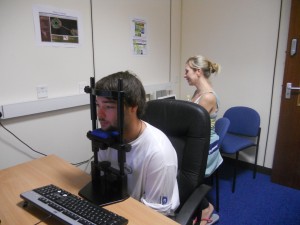 Prosopagnosia – or ‘face blindness’ – is a little known condition affecting 1 in 50 people. As Bournemouth University psychology lecturer Dr Sarah Bate explains, it is ‘literally a loss of memory for faces’.
Prosopagnosia – or ‘face blindness’ – is a little known condition affecting 1 in 50 people. As Bournemouth University psychology lecturer Dr Sarah Bate explains, it is ‘literally a loss of memory for faces’.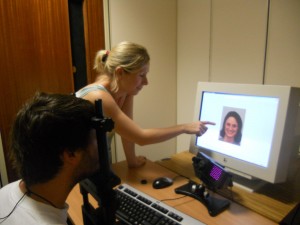 A couple of months ago we ran a blog post about the amazing research into prosopagnosia (face blindness) being undertaken at Bournemouth University by
A couple of months ago we ran a blog post about the amazing research into prosopagnosia (face blindness) being undertaken at Bournemouth University by 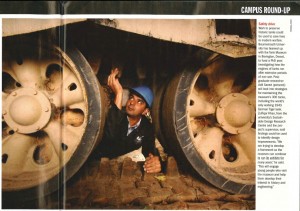
 Research by
Research by 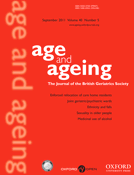 Prior to this project Samuel undertook a systematic review of older people’s participation in falls prevention interventions. Earlier this year Samuel presented this research at a symposium in Italy for the European Congress of the International Association of Gerontology and Geriatrics, which he also co-chaired. He will also present this work as one of the six selected oral presentations at the forthcoming
Prior to this project Samuel undertook a systematic review of older people’s participation in falls prevention interventions. Earlier this year Samuel presented this research at a symposium in Italy for the European Congress of the International Association of Gerontology and Geriatrics, which he also co-chaired. He will also present this work as one of the six selected oral presentations at the forthcoming 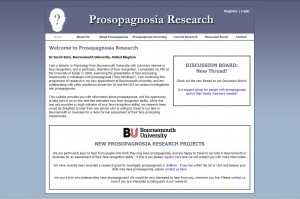
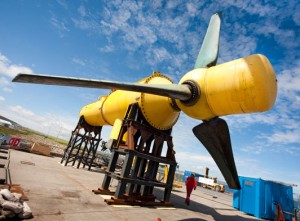 “European Union ministers meeting in Luxembourg have signalled support for draft European Commission plans for an energy efficiency law impacting directly on utilities”
“European Union ministers meeting in Luxembourg have signalled support for draft European Commission plans for an energy efficiency law impacting directly on utilities” 

 Of those involved in research, some are resourceful, creative and can develop new research ideas. Some do it by joining others or managing other people’s research ideas. But some just can’t engage with research full stop. Why? I do not know. Maybe because they need to be told how, and in research no one can. Also personality may have a lot to do with it. So you come to realise that everyone has a different view or definition of what research or research activities is all about.
Of those involved in research, some are resourceful, creative and can develop new research ideas. Some do it by joining others or managing other people’s research ideas. But some just can’t engage with research full stop. Why? I do not know. Maybe because they need to be told how, and in research no one can. Also personality may have a lot to do with it. So you come to realise that everyone has a different view or definition of what research or research activities is all about.


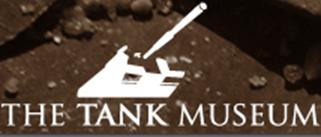 The
The 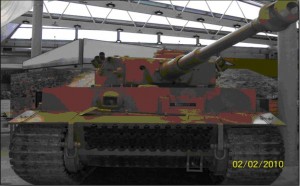 Adil was recently invited as guest speaker by Forensic Institute Cranfield University at Shrivenham where his guest lecture was well attended and received. In addition Adil has also presented the outcome of the ongoing research in the Department of Materials at Oxford University, where member of the research consortia and Oxford university staff attended the presentation.
Adil was recently invited as guest speaker by Forensic Institute Cranfield University at Shrivenham where his guest lecture was well attended and received. In addition Adil has also presented the outcome of the ongoing research in the Department of Materials at Oxford University, where member of the research consortia and Oxford university staff attended the presentation.

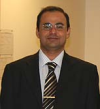 The title is the highest elected grade of membership within the IMechE. Fellowship is awarded to members who have demonstrated significant individual responsibility, sustained achievement and exceptional professionalism during their careers.
The title is the highest elected grade of membership within the IMechE. Fellowship is awarded to members who have demonstrated significant individual responsibility, sustained achievement and exceptional professionalism during their careers.
 The
The 

 Dr Ben Thomas
Dr Ben Thomas The Royal National Lifeboat Institution (RNLI) is a charitable organisation that provides marine search and rescue cover along the entire coast range of the UK and Ireland. Lifeboat slipway stations are an essential part of the RNLI’s coastal protection; they allow lifeboat stations to be located in areas where there is no natural harbour and for lifeboats to be launched in almost any weather conditions. However, as the size and mass of lifeboats have increased over the years the traditional wood or steel lined slipways have been shown to be insufficient, with problems of friction and wear affecting the reliability of slipway launches. New composite slipway panels have reduced these issues but high friction and wear problems remain, with replacement costs for the expensive composite panels placing strain on the RNLI’s scarce resources.
The Royal National Lifeboat Institution (RNLI) is a charitable organisation that provides marine search and rescue cover along the entire coast range of the UK and Ireland. Lifeboat slipway stations are an essential part of the RNLI’s coastal protection; they allow lifeboat stations to be located in areas where there is no natural harbour and for lifeboats to be launched in almost any weather conditions. However, as the size and mass of lifeboats have increased over the years the traditional wood or steel lined slipways have been shown to be insufficient, with problems of friction and wear affecting the reliability of slipway launches. New composite slipway panels have reduced these issues but high friction and wear problems remain, with replacement costs for the expensive composite panels placing strain on the RNLI’s scarce resources.










 Nursing Research REF Impact in Nepal
Nursing Research REF Impact in Nepal Fourth INRC Symposium: From Clinical Applications to Neuro-Inspired Computation
Fourth INRC Symposium: From Clinical Applications to Neuro-Inspired Computation ESRC Festival of Social Science 2025 – Reflecting back and looking ahead to 2026
ESRC Festival of Social Science 2025 – Reflecting back and looking ahead to 2026 3C Event: Research Culture, Community & Cookies – Tuesday 13 January 10-11am
3C Event: Research Culture, Community & Cookies – Tuesday 13 January 10-11am Dr. Chloe Casey on Sky News
Dr. Chloe Casey on Sky News ECR Funding Open Call: Research Culture & Community Grant – Application Deadline Friday 12 December
ECR Funding Open Call: Research Culture & Community Grant – Application Deadline Friday 12 December MSCA Postdoctoral Fellowships 2025 Call
MSCA Postdoctoral Fellowships 2025 Call ERC Advanced Grant 2025 Webinar
ERC Advanced Grant 2025 Webinar Horizon Europe Work Programme 2025 Published
Horizon Europe Work Programme 2025 Published Update on UKRO services
Update on UKRO services European research project exploring use of ‘virtual twins’ to better manage metabolic associated fatty liver disease
European research project exploring use of ‘virtual twins’ to better manage metabolic associated fatty liver disease